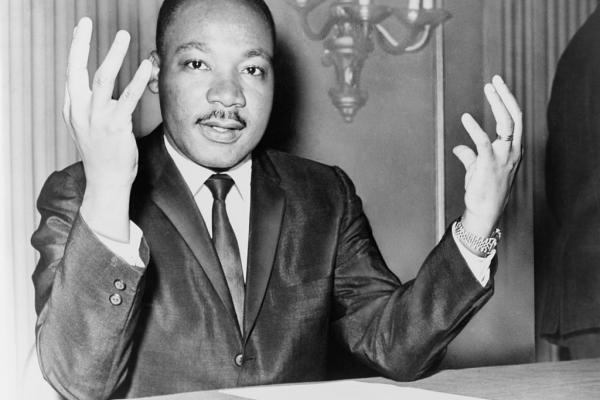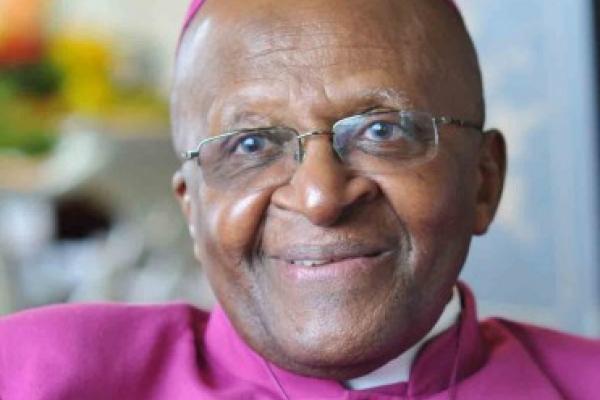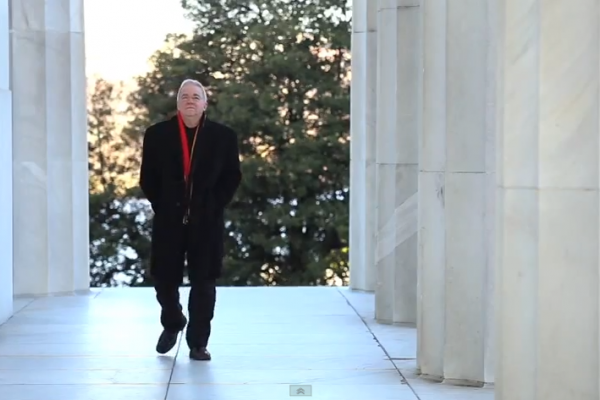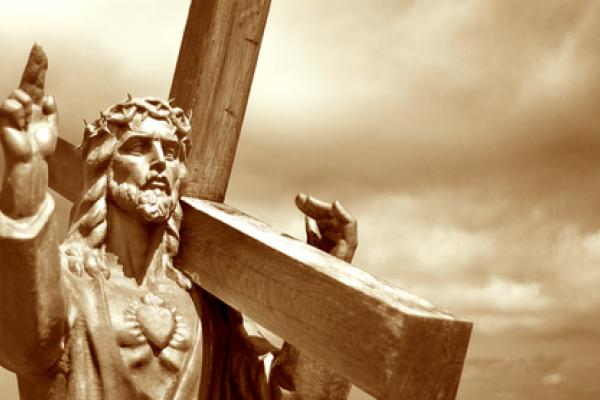This August will mark the 50th anniversary of Martin Luther King’s “I Have a Dream” speech, and there will rightly be much remembrance and celebration of its place in American history. But there is another anniversary that our nation, and especially its Christians, would do well to acknowledge, investigate, and ruminate.
Forty-five years ago yesterday, Dr. King arrived in Memphis, Tenn., to support a sanitation workers’ strike seeking to unionize. He was assassinated the next day — the anniversary we today remember — and in a sad irony our nation began the sanitation of his legacy. Indeed, King’s decision to join the Memphis struggle was just one of many acts that clash with what David Sirota calls the “Santa Clausified” image of King that we pass to our youth.
The Church of the Brethren will consider a “Resolution Against Drone Warfare” at its annual conference this summer. Passed by the church’s Mission and Ministry Board, the resolution states
“We are troubled by the quickly expanding use of armed unmanned aerial vehicles, or drones. These drones are being used for surveillance and remote killing of people. In our opposition to all types of war, the Church of the Brethren has spoken out specifically against covert warfare.... Drone warfare embodies the fundamental problems that covert warfare entails.”
The resolution urges the church and its members to
“Call upon Congress to hold the President accountable for his administration’s past use of armed drones, and to control the future use of armed drones by instituting legitimate oversight of any deployment of drones by the military or the CIA. We will no longer tolerate secretive “kill lists,” and the decision-making process in the matter of armed drones must be made public so that the lethal actions of government may be properly understood and judged.”
Desmond Tutu, the former Anglican archbishop of Cape Town, South Africa, who won a Nobel Peace Prize for his battle against apartheid, has won the 2013 Templeton Prize, which is billed as the most significant award in the field of spirituality and religion.
Tutu, who has not been afraid in recent years to criticize leaders in his country and across Africa for humanitarian and political shortfalls, was cited for his work in advancing the cause of peace and the spiritual principles of forgiveness.
“By embracing such universal concepts of the image of God within each person, Desmond Tutu also demonstrates how the innate humanity within each of us is intrinsically tied to the humanity between all peoples,” Dr. John M. Templeton, Jr., the president and chairman of the John Templeton Foundation, said in a video statement released Thursday announcing the $1.7 million award.
I recently went back to the Lincoln Memorial to tell the story of how and why I wrote my new book, On God’s Side: What Religion Forgets and Politics Hasn’t Learned About Serving the Common Good. And I reflected on my favorite Lincoln quote, displayed on the book’s cover:
“My concern is not whether God is on our side: my greatest concern is to be on God’s side.”
I invite you to watch this short video, and to engage in the discussion as we move forward toward our common good. Blessings.
Last weekend – Easter – was a time where all Christians remember the tragic end of Jesus’ life, as well as the miraculous raising of Jesus the Christ from his death. The week prior to Jesus’ death – Holy Week – is one where Christians focus on Jesus’ arrival and entry into Jerusalem, the hub of Israeli and Jewish power, amid excited and adoring crowds. As we read through and remembered this tragic story, we heard and saw the excitement and adoration of the people quickly turn, resulting in a call by the people to kill – crucify! – this man they so enthusiastically welcomed. Not only do the people cry for his death, but they answer Pilate’s question by declaring let “His blood be on us and on our children” (Matt. 27:25). The multitude, in other words, embrace the responsibility for Jesus’ crucifixion, whereas Pilate, ironically, acts like a good Israelite seeking to separate himself from a deed that violates covenant justice (Gardner, 390). The result of the people’s eagerness, which was fed, we are told, by the chief priests and elders’ ability to persuade the multitude, lead to the death of Jesus on the cross.
My fear, however, as we remember the horrible and horrific event of the crucifixion, is that we have forgotten much of its significance, both historically in Jesus’ time and for us today. What we now call the “substitutionary atonement theory” has understood the cross primarily as the beginning of salvation, and not also as the culmination of a radical life lived within an Empire. This theory has tended to disconnect the life-path chosen by Jesus from the salvation attributed to the cross. The cross, as represented in the New Testament, is both an end and a beginning. It demonstrates the predictable end of life lived in service to the Kingdom of God within an Empire. It also invites us into a future in which the power of this life-ending cross becomes the power of a cross-initiated life.
This spring, I gave up alcohol for Lent, the forty days of penitence between Ash Wednesday and Easter. And now almost one week after the Alleluias and Easter baskets, I may be addicted to Lent.
On Shrove Tuesday, the day before Lent began, my thirteen-year daughter Maya explained alcohol to her seven-year old sister in the backseat of our car: “See, sometimes adults just like having a drink after a long day of work. It helps them relax.” That same week, one of my friends said, “You aren’t a heavy drinker, but you are a consistent drinker.”
It was time to take a break, even if I knew that one glass of red wine at night wasn’t the end of the world. I needed to give it up because I wasn’t sure if I could.
I’m no postmodern theology expert, so I’ll leave it to the pros to explicate more about what’s what in postmodern thought. But for me, the exciting work revolves around supplanting things like binary, propositional “truths” about God with more inductive, open-ended notions of the Divine that transcend religious doctrine or even our own mental constructs of God. This is both a necessary and a liberating process, I think, that indeed can lead the Church (big C Church, that is) toward something far more reconciling and healing for humanity than the modernist approach to faith we’ve employed for many decades now, if not some centuries.
It’s helpful to look back a little bit at where we’ve come from in our religious and theological evolution of thought and practice. At the risk of geeking out on something that puts everyone to sleep, I’ll try to make this quick and fairly painless. Interestingly, it can be argued that the more fundamentalist strain of Christianity can trace its origins back to the “liberal” thinking following the Enlightenment that suggested all things – faith, God, and religious thought included – could be explained by rational means. This hyper-rationalism sought to build up rhetorical constructs that made a case for God, so to speak, as well as buttressing the doctrines of the Church.
Whenever I hear the term Common Good I think of Thomas Paine’s infamous pamphlet Common Sense,which challenged the British government and the royal monarchy, but did not challenge the institution of slavery. As an African-American woman I enter the Common Good conversation cautiously because I know that in our society we have a habit of taking what is good for Western hegemony and making it the standard for everyone else.
As we pursue the Common Good, let us remember what was once considered common and good during earlier points in American history: chattel slavery, indigenous genocide, and institutionalized sexism. To truly come to a Common Good, we need to honor a diversity of voices and challenge our assumptions about what is common and what is good. Our default is to take what is good for our culture, gender, or community and make it the common standard for all. I have experienced being invited into organizations that were aiming to do good in the world, but an expectation existed that I would be silent about my unique concerns as an African woman. I know that denying my reality can never be good for my spiritual, physical, or social well being.
Pope Francis on Wednesday said women play a “fundamental role” in the Catholic Church as those who are mostly responsible for passing on the faith from one generation to the next.
While the new pope stopped far short of calling for women’s ordination or giving women more decision-making power in the church, his remarks nonetheless signaled an openness to women that’s not often seen in the church hierarchy.
“In the church and in the journey of faith, women have had and still have a special role in opening doors to the Lord,” the Argentine pontiff said during his weekly audience in St. Peter’s Square.







